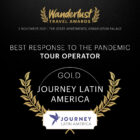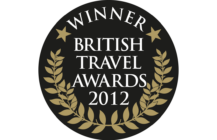Up close and Cuban

"Life’s not easy," the Cubans insisted. "But it’s not difficult either."
This said it all. It was the mantra of 11 million long-suffering Cubans but it could easily have been the strapline for the island’s tourism. Ironically, Cuba, the most musically vivid corner of our planet, with its exotic jungles and squeaky sand, has the highest suicide rate in the western hemisphere.
At the crux of these contradictions is Havana. Unlike the lavish, brilliantly-coloured provinces, the air in Havana was antique and the light filmy and sweet. Time stopped on the day the revolutionaries entered the city, in 1959, and caught in its crusted snapshot were Oldsmobiles and decay, El Greco faces, horsemen and a sense of normality suspended.
I was thrilled by Havana with its coral palaces and flaky grandeur. It was a city of experience, of powerful drinks and cartoon whores, of snake-charmers and dancing dwarves. Small wonder that Hemingway was briefly happy here. He fled in fear of revolutionary asceticism but he needn’t have worried. Habaneros are still shameless, dancing coitally and swinging their buttocks in lycra. Hemingway’s house is preserved for his return, every tumbler in its place.
When it was time to tear ourselves away, we joined our group and our guide, Olivia. Although young and English, she could cope with Cuba. When Cuban Railways couldn’t get the engine back in their train, she found us buses. When our mountain pension fluffed our bookings, she found us tents. She knew of beaches without sharks and restaurants with food.
After the train disembowelment, we took to the island with a small bus. First, we wandered across the sugar lands. We passed towns famous for witchcraft, opera or vile cigarettes. At Remedios, former slaves laid a barrage of fireworks on their village, with their band marching round the plaza phrumphing and tootling. There was more dancing at Santa Clara. The jazz was sublime - raw, unplugged, passionate but seldom expressing happiness. Life’s not easy, I remembered.
And nor was it. Cuban life taps along to a rhythm of scarcity and rationing. The bread ration is 80g a day. There’s no makeup, no biros, no butter - and hardly any fuel. Polythene bags hang out to dry. A rickshaw economy flourishes. Everyone’s a hitchhiker, flaunting wads of useless pesos, a cabbage or just a good pair of thighs. We had the magnificent autopistas to ourselves - all clipped, swept and empty.
The countryside was lush and extravagant, a carnival of succulents, waterfalls, humming-birds and ox-teams. Trinidad was all that’s survived of Cuban slavery; cobbled lanes and pastel cottages. The cities on the other hand were grandiose - Camagüey, Bayamo and Santiago - their great arcades declaring ‘once we gave the world sugar, now it’s Jazz’. Their citizens were forgiving, phlegmatic and resourceful. Who needs biros anyway? They rode three to a bike and roasted pigs on Revolution Square. There were miniaturised goat-carts for the children, and the veterans wore battle-dress. Peddlars called themselves ‘mobile sales points’ and sold lantern-fuel and sandpaper. "Hats repaired" said the signs. "Lighters refilled."
Everywhere, idealism was bellowing itself hoarse. ‘Discipline is triumph!’ proclaimed the walls. ‘Resist and Conquer!’ We dutifully followed Che Guevara’s campaign trail. One day, we even clambered up into the revolutionaries’ old hideout in the Sierra Maestra. Up there, in the cloud and jungle, there were orange trees and parrots and glorious ferns. Fidel’s hut, we noticed, had a sumptuous double bed. Later, his musicians - the Quinteto Rebelde - played at our hotel. They’d been singing for 45 years, through gunfire and scarcity, and naturally outlasted our stamina.
Towards the end, an ancient Russian truck carried us into the toe of Cuba, to Baracoa, a fishing town cut off from the world until the 1960s. In 1512, Columbus recorded that the beauty of this horse-shoe bay had left him momentarily speechless. The locals have been filling the silence ever since.
Scarcity hardly worried them. They fished and made chocolate. They disguised their pedal-cars as jeeps and grew vegetables in tyres, helmets, anything. Their strength was derived from the greatest Cuban rebel of them all, José Martí (1853-95). "If you’re destined to be a sardine," he’d said, "the can will drop from heaven".
Tailor-made holidays
Flexible, custom-made holidays to Latin America created to match your exact requirements: our tailor-made itineraries are as unique as the clients for whom they are designed.
Design my trip


























